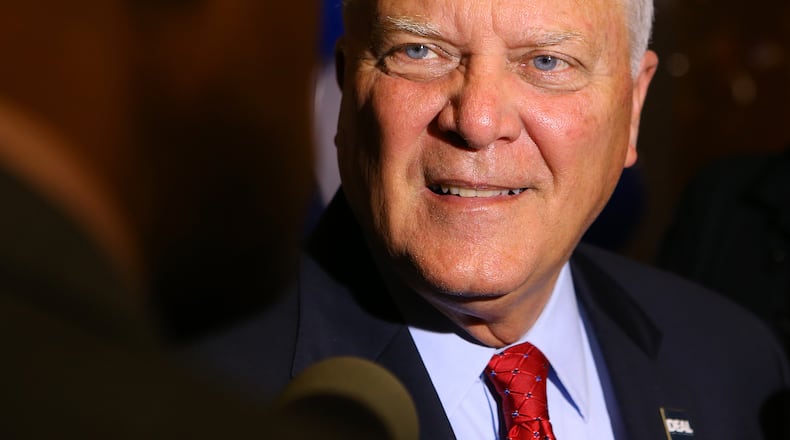Gov. Nathan Deal shed a little more light on what Georgia officials are seeking with a special Medicaid waiver that will be used to conduct what they're calling an experiment -- and not an expansion.
Deal said in an interview that the waiver would “explore the possibilities of covering people who are now uninsured,” including some of the estimated 650,000 people who would be covered if Georgia expanded the Medicaid program. The charge is being led by Grady Memorial Hospital, which is working with struggling rural hospitals and other healthcare facilities around the state to craft the plan.
“Grady has put together a team working with other hospitals in the state to pursue the 1115 waiver, which will give us some flexibility," he said. “That’s the main ingredient that governors like me have been saying all along. If you give us some flexibility then we could provide greater coverage and more coverage.”
Other Republican states have used the same waiver to expand their Medicaid programs, and language slipped into the state budget proposal could give Georgia an avenue to start the process. But Deal said he remains firmly opposed to expanding Medicaid because of its long-term costs. Such a move would require the approval of the state Legislature, whose GOP leaders also are against an expansion.
“It is an entitlement program," said Deal.
Our AJC colleague Misty Williams spoke with Grady chief executive John Haupert on Thursday. He told her that the Section 1115 waiver was the first step in addressing Georgia's uninsured population.
“If the governor is adamantly opposed to…full blown expansion,” he said, “I’d rather see us take incremental steps than nothing at all."
***
Over at WABE (90.1FM), Jonathan Shapiro reports that a group of electric car owners are considering a class action lawsuit over the annual $200 tax that's been levied upon them under the state's new transportation funding law:
"We're not opposed to paying a fee. We should be paying a fee whether it's 20 bucks, 50 bucks, whatever it is. But it can't be just arbitrarily created because it was a nice round number."
…Public Service Commissioner and electric car advocate Tim Echols agrees the fee is punitive but backs a more diplomatic approach. He says electric car owners like himself simply need to make a better case to lawmakers.
***
The Augusta Chronicle this morning has a remembrance of Joey Brush, the former state senator killed on Thursday when a car pulled into the path of his motorcycle:
"I loved that singing, and he loved that motorcycle," said Sen. Ed Harbison, D-Columbus. "We would all get in the back room, and he would tell us of his adventures, and he would croon to us sometimes."
***
Martha Zoller has abandoned her political blog, zPolitics, a project she began after her unsuccessful 2012 Republican congressional campaign. She is now a senior advisor to U.S. Sen. David Perdue. Zoller has placed zPolitics in the hands of its new editor-in-chief, Christy Riggins.
***
This might be worth a try when state lawmakers convene in Atlanta next year. From NPR:
Minnesota Senate Rule 36.8 requires that all remarks during debate be addressed to the Senate president at the front of the chamber. It's been on the books forever. And it's actually a rule most state legislatures have. Even the U.S. Senate has it. But Minnesota — known for its "Minnesota Nice" — takes it one step further, interpreted to mean that senators cannot look at each other during debate.
About the Author



